GOV'T TO EXPAND OIL TAX CUT
입력 2022.04.06 (15:02)
수정 2022.04.06 (16:45)
읽어주기 기능은 크롬기반의
브라우저에서만 사용하실 수 있습니다.
[Anchor Lead]
The government has decided to expand the current 20-percent oil tax cut to 30 percent from next month, the largest cut ever. Cracking down on gas stations so that they reflect the tax cut immediately is important to alleviate consumers' burden.
[Pkg]
Prices of gasoline topped two thousand won per liter. It's been more than four months since the oil tax was slashed, but it has done little to alleviate consumers' burden.
[Soundbite] Na Keun-hee(Seoul resident) : "Prices should go down right after the government's announcements, but so far they don't seem to be lower at all."
Gasoline prices have soared substantially lately. They are not going down because many gas stations refuse to reflect the lower oil tax. More than a month since the tax cut, few gas stations in the nation have curtailed their prices by more than 100 won per liter despite international oil prices falling during that period. A survey shows less than one percent of gas stations reflect both the tax cut and the falling international oil prices.
[Soundbite] Lee Seo-hye(Energy Consumer) : "Prices at the pump remain high even when international oil prices go down, and the government's measures regarding the oil tax are not reflected fully. When international oil prices rise again, gasoline prices go up as well."
Privately-owned gas stations cannot be forced to lower their prices. The government has decided to designate more low-cost gas stations in urban areas. Applications were received last month. But only four gas stations in Seoul and Incheon each applied. It's unknown when the second round of applications will be held, and gas stations designated as "low-cost" will have to wait some time before they can start their operation. It's hard for the government to grasp the situation accurately due to external factors, such as foreign currency rates, but authorities claim oil tax cuts have been reflected appropriately. However experts are calling for thorough on-site inspections as oil tax cuts may not be reflected properly in production and distribution.
The government has decided to expand the current 20-percent oil tax cut to 30 percent from next month, the largest cut ever. Cracking down on gas stations so that they reflect the tax cut immediately is important to alleviate consumers' burden.
[Pkg]
Prices of gasoline topped two thousand won per liter. It's been more than four months since the oil tax was slashed, but it has done little to alleviate consumers' burden.
[Soundbite] Na Keun-hee(Seoul resident) : "Prices should go down right after the government's announcements, but so far they don't seem to be lower at all."
Gasoline prices have soared substantially lately. They are not going down because many gas stations refuse to reflect the lower oil tax. More than a month since the tax cut, few gas stations in the nation have curtailed their prices by more than 100 won per liter despite international oil prices falling during that period. A survey shows less than one percent of gas stations reflect both the tax cut and the falling international oil prices.
[Soundbite] Lee Seo-hye(Energy Consumer) : "Prices at the pump remain high even when international oil prices go down, and the government's measures regarding the oil tax are not reflected fully. When international oil prices rise again, gasoline prices go up as well."
Privately-owned gas stations cannot be forced to lower their prices. The government has decided to designate more low-cost gas stations in urban areas. Applications were received last month. But only four gas stations in Seoul and Incheon each applied. It's unknown when the second round of applications will be held, and gas stations designated as "low-cost" will have to wait some time before they can start their operation. It's hard for the government to grasp the situation accurately due to external factors, such as foreign currency rates, but authorities claim oil tax cuts have been reflected appropriately. However experts are calling for thorough on-site inspections as oil tax cuts may not be reflected properly in production and distribution.
■ 제보하기
▷ 카카오톡 : 'KBS제보' 검색, 채널 추가
▷ 전화 : 02-781-1234, 4444
▷ 이메일 : kbs1234@kbs.co.kr
▷ 유튜브, 네이버, 카카오에서도 KBS뉴스를 구독해주세요!
- GOV'T TO EXPAND OIL TAX CUT
-
- 입력 2022-04-06 15:02:01
- 수정2022-04-06 16:45:21
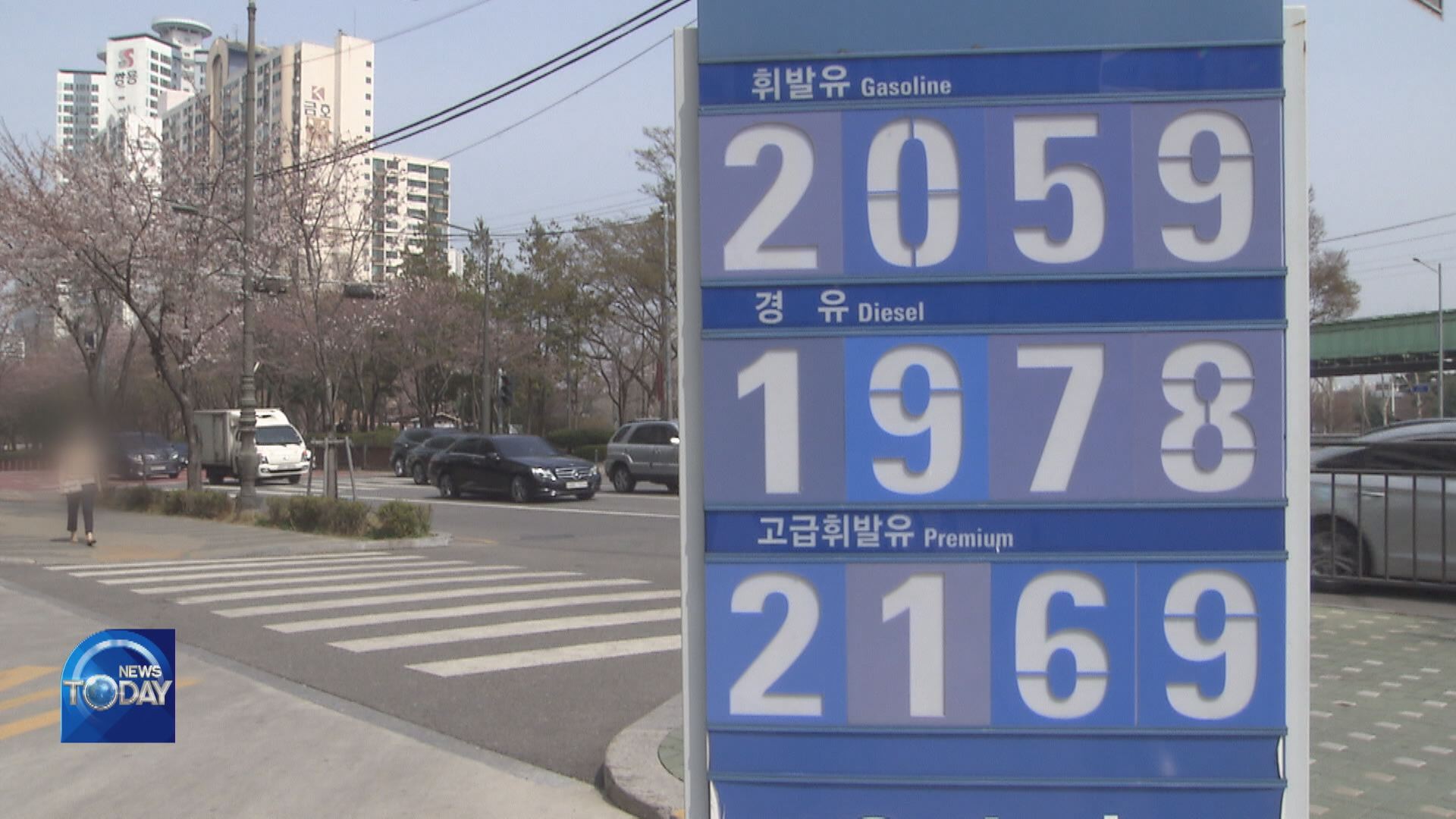
[Anchor Lead]
The government has decided to expand the current 20-percent oil tax cut to 30 percent from next month, the largest cut ever. Cracking down on gas stations so that they reflect the tax cut immediately is important to alleviate consumers' burden.
[Pkg]
Prices of gasoline topped two thousand won per liter. It's been more than four months since the oil tax was slashed, but it has done little to alleviate consumers' burden.
[Soundbite] Na Keun-hee(Seoul resident) : "Prices should go down right after the government's announcements, but so far they don't seem to be lower at all."
Gasoline prices have soared substantially lately. They are not going down because many gas stations refuse to reflect the lower oil tax. More than a month since the tax cut, few gas stations in the nation have curtailed their prices by more than 100 won per liter despite international oil prices falling during that period. A survey shows less than one percent of gas stations reflect both the tax cut and the falling international oil prices.
[Soundbite] Lee Seo-hye(Energy Consumer) : "Prices at the pump remain high even when international oil prices go down, and the government's measures regarding the oil tax are not reflected fully. When international oil prices rise again, gasoline prices go up as well."
Privately-owned gas stations cannot be forced to lower their prices. The government has decided to designate more low-cost gas stations in urban areas. Applications were received last month. But only four gas stations in Seoul and Incheon each applied. It's unknown when the second round of applications will be held, and gas stations designated as "low-cost" will have to wait some time before they can start their operation. It's hard for the government to grasp the situation accurately due to external factors, such as foreign currency rates, but authorities claim oil tax cuts have been reflected appropriately. However experts are calling for thorough on-site inspections as oil tax cuts may not be reflected properly in production and distribution.
The government has decided to expand the current 20-percent oil tax cut to 30 percent from next month, the largest cut ever. Cracking down on gas stations so that they reflect the tax cut immediately is important to alleviate consumers' burden.
[Pkg]
Prices of gasoline topped two thousand won per liter. It's been more than four months since the oil tax was slashed, but it has done little to alleviate consumers' burden.
[Soundbite] Na Keun-hee(Seoul resident) : "Prices should go down right after the government's announcements, but so far they don't seem to be lower at all."
Gasoline prices have soared substantially lately. They are not going down because many gas stations refuse to reflect the lower oil tax. More than a month since the tax cut, few gas stations in the nation have curtailed their prices by more than 100 won per liter despite international oil prices falling during that period. A survey shows less than one percent of gas stations reflect both the tax cut and the falling international oil prices.
[Soundbite] Lee Seo-hye(Energy Consumer) : "Prices at the pump remain high even when international oil prices go down, and the government's measures regarding the oil tax are not reflected fully. When international oil prices rise again, gasoline prices go up as well."
Privately-owned gas stations cannot be forced to lower their prices. The government has decided to designate more low-cost gas stations in urban areas. Applications were received last month. But only four gas stations in Seoul and Incheon each applied. It's unknown when the second round of applications will be held, and gas stations designated as "low-cost" will have to wait some time before they can start their operation. It's hard for the government to grasp the situation accurately due to external factors, such as foreign currency rates, but authorities claim oil tax cuts have been reflected appropriately. However experts are calling for thorough on-site inspections as oil tax cuts may not be reflected properly in production and distribution.
이 기사가 좋으셨다면
-
좋아요
0
-
응원해요
0
-
후속 원해요
0










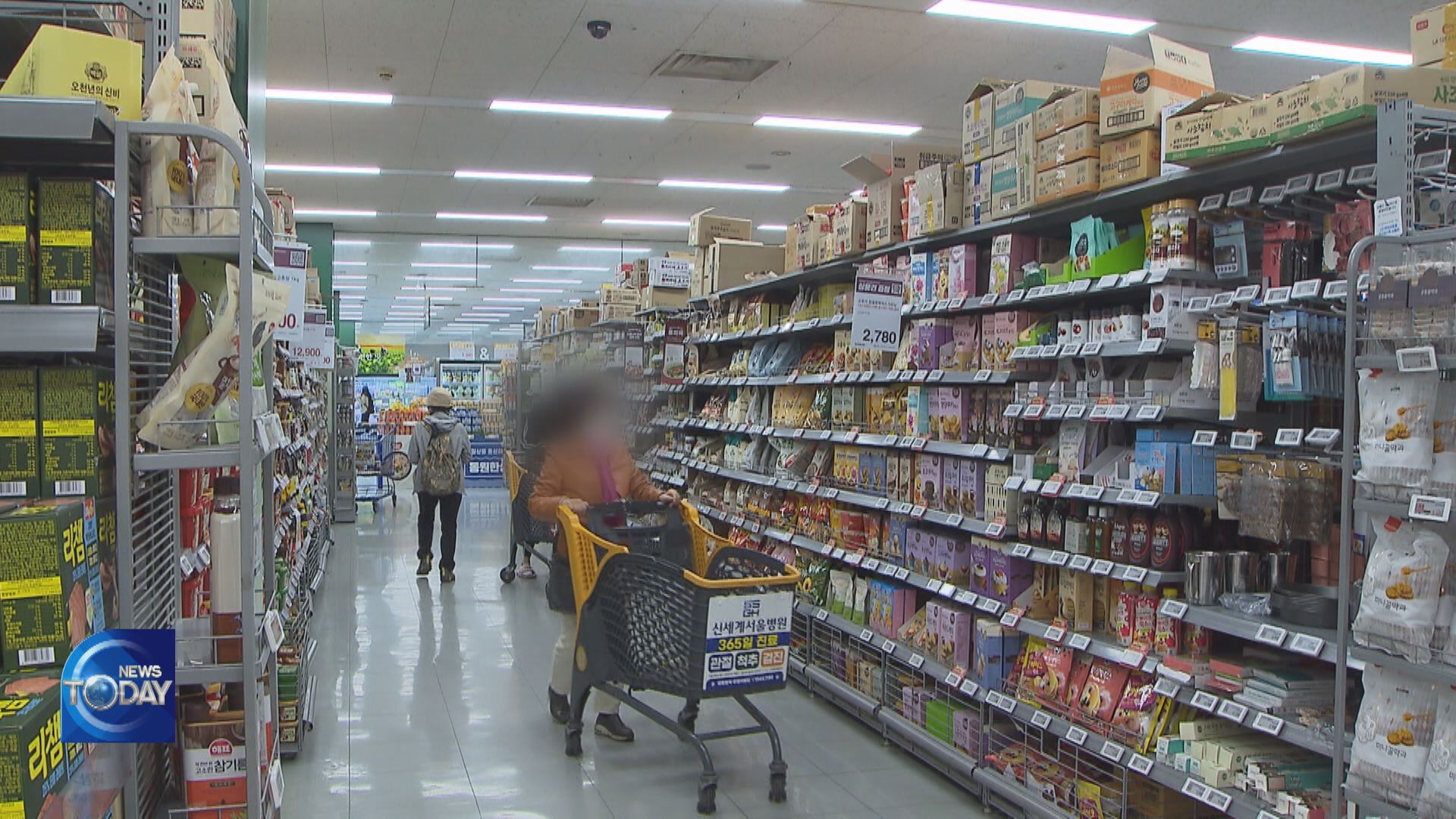
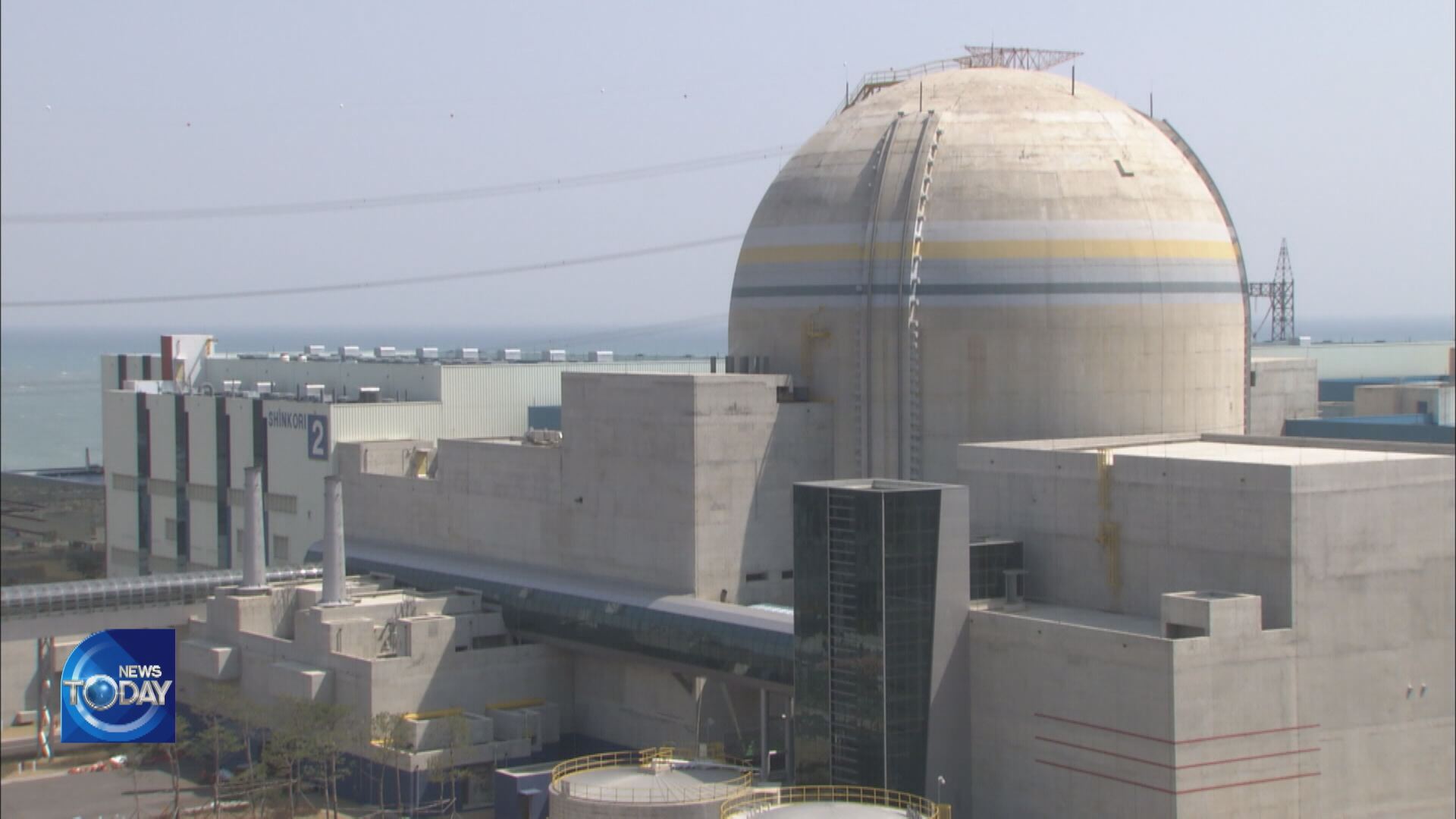
![[단독] 위성락 실장 “전작권 협상 카드 아냐”…<br>차관 인선 발표](/data/layer/904/2025/07/20250713_krfuHu.jpg)
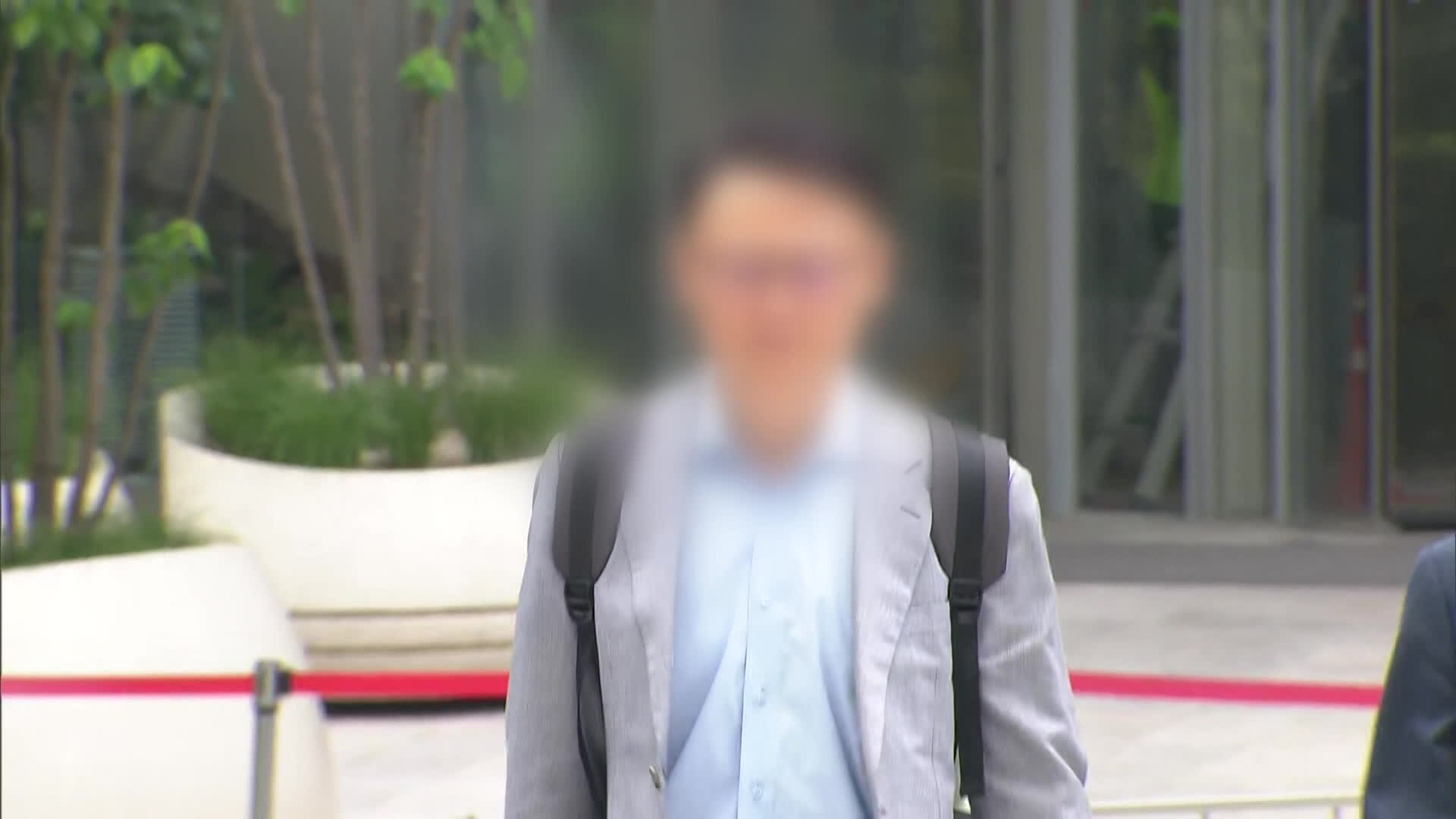
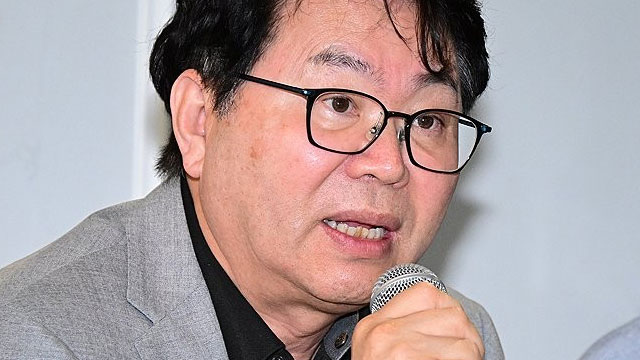
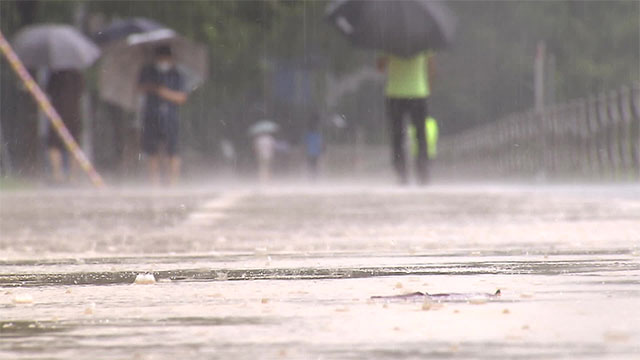

이 기사에 대한 의견을 남겨주세요.